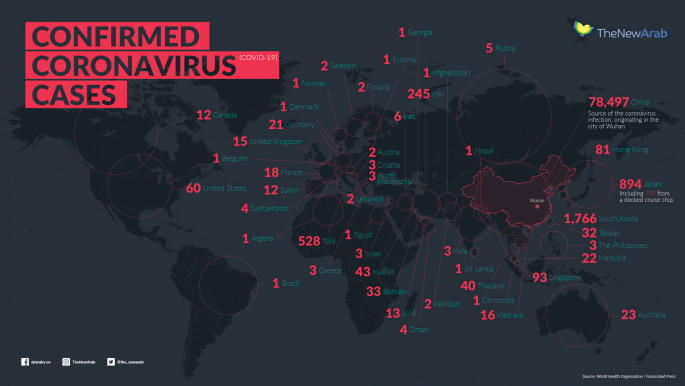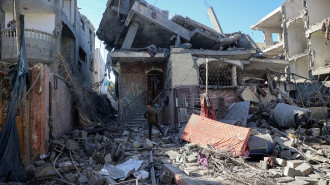Swiss humanitarian channel to Iran takes effect
A new Swiss payment mechanism allowing food, medicine and other humanitarian aid to be sent to Iran without stumbling over US sanctions has officially taken effect, Bern said on Thursday.
The Swiss mechanism comes at a critical time for Iran, as its health system struggles to contain the coronavirus epidemic.
The system was created to allow Swiss companies in the food, pharmaceutical and medical sectors to make aid shipments to Iran without drawing the wrath of Washington for breaching a vast range of sanctions against the Islamic country.
"The Swiss Humanitarian Trade Arrangement (SHTA), a payment mechanism to enable humanitarian goods to be delivered to Iran, came into effect on 27 February," the Swiss economic affairs ministry (SECO) said in a statement.
Iran has been facing severe medical shortages since the US pulled out of a landmark nuclear deal and reimposed crippling sanctions on the country in 2018.
|
Washington had exempted humanitarian goods, especially medicines and medical equipment from its punitive measures.
But international purchases of such supplies are forestalled by banks being wary of conducting any business with Iran, for fear of falling foul of sanctions themselves.
This has sent medicine prices in Iran soaring and has had severe consequences, especially for people suffering from rare or special diseases that require imported medication.
An Iranian representative, Farhad Memelohi, for instance told the UN Human Rights Council in Geneva Thursday that "at least 15 Iranian children with epidermolysis bullosa (EB) had died due to the lack of medication and equipment, resulting from US sanctions".
He said the Swedish pharmaceutical company supplying protective bandages for patients who suffer from the genetic condition that results in easy and dangerous blistering of the skin, "halted their supplies due to the restrictions."
The new coronavirus epidemic, which has hit Iran particularly hard, has put further pressure on the health system and there is a shortage of face masks.
Iran said Thursday it had recorded an additional 106 cases, bringing the total in the Islamic Republic to 245, of which 26 had proven fatal.
SECO said Swiss authorities had been working "intensively" since late 2018 to implement a humanitarian payment mechanism, hailing that the SHTA agreement had finally taken effect.
"In this way, Switzerland is helping to supply the Iranian population with agricultural commodities, food, medicines and medical equipment ... in keeping with Switzerland’s humanitarian tradition," it said.
 |
Under the agreement, the US Treasury Department will provide involved Swiss banks and companies "with the necessary assurances that financial transactions can be processed in accordance with US legislation."
In return, the exporters and banks will provide SECO with "detailed information about their business activities and business partners in Iran and the transactions they carry out," the statement said.
Read more: Iran's mishandling of the coronavirus outbreak is putting its citizens at risk
Swiss authorities will then make that information available to their US counterparts, and they will work together to ensure "increased due diligence" regarding the transactions, it added.
A pilot transaction was conducted last month after the Swiss government approved the agreement in principle, allowing for an initial payment for the shipment of cancer drugs and medicines required for organ transplants to Iran.
Follow us on Facebook, Twitter and Instagram to stay connected







 Follow the Middle East's top stories in English at The New Arab on Google News
Follow the Middle East's top stories in English at The New Arab on Google News


